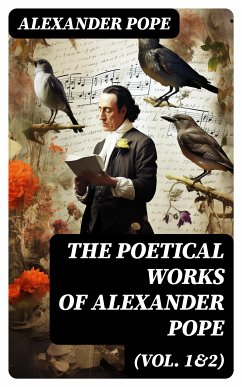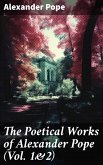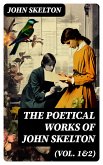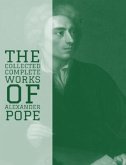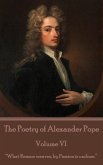In 'The Poetical Works of Alexander Pope (Vol. 1&2)', Pope masterfully weaves classical and contemporary themes through his renowned satirical style, employing heroic couplets to both entertain and provoke critical thought. The volumes encompass a range of works, including his acclaimed 'Essay on Criticism' and 'The Rape of the Lock,' showcasing his keen wit and command over language. Pope's poetry often critiques the social mores of the 18th century, drawing from classical influences while simultaneously engaging with the burgeoning literature and philosophical discourse of his time, positioning him as a vital figure in the neoclassical movement. Alexander Pope, celebrated as one of the preeminent poets of the Augustan age, faced many challenges throughout his life, including health issues and societal criticism. His experiences, from growing up in a Catholic family in a predominantly Protestant England to navigating the complexities of literary fame, infused his works with a profound understanding of human nature and the absurdities of social pretensions. I recommend these volumes not only for their aesthetic brilliance but also for their insightful examinations of the human condition. Readers will find Pope's wit and wisdom resonating through the ages, providing not just entertainment but also a lens through which to understand the broader cultural and moral landscapes of his era.
Dieser Download kann aus rechtlichen Gründen nur mit Rechnungsadresse in A, B, BG, CY, CZ, D, DK, EW, E, FIN, F, GR, H, IRL, I, LT, L, LR, M, NL, PL, P, R, S, SLO, SK ausgeliefert werden.

